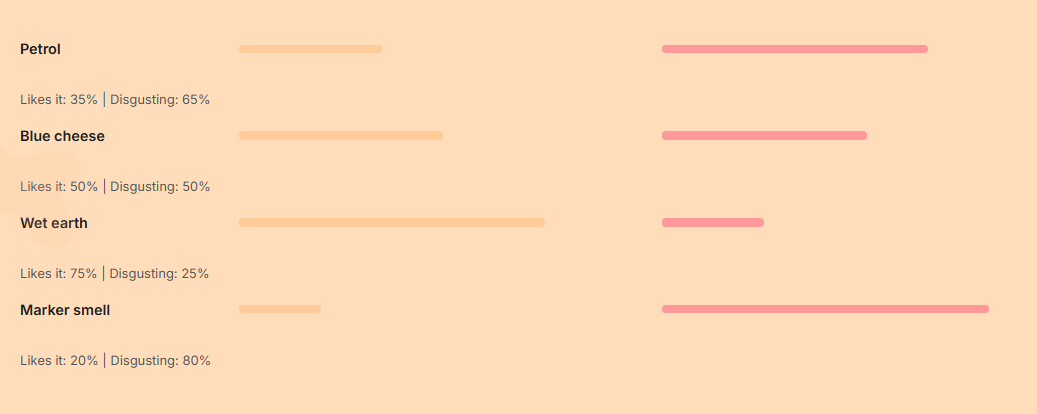Popular on TelAve
- Still Using Ice? FrostSkin Reinvents Hydration
- Nest Finders Property Management Named #1 in Jacksonville and Ranked #99 Nationwide
- OneVizion Announces Next Phase of Growth as Brad Kitchens Joins Board of Directors
- Half of Finnish Online Gambling Expenditure Now Flows to Offshore Instant Casinos as License Applications Open March 1, 2026
- Market Value Enhancement From 2 Important New US Patents Issued for Strengthening Hair Enzyme Booster Technology to Caring Brands (NAS DAQ: CABR)
- EPP Pricing Platform announces leadership transition to support long-term growth and continuity
- Luxury Lake-View Home Launches in Kissimmee's Bellalago community, Offering Privacy, Space, and Florida Resort-Style Living
- RTC Communications Completes Next Level Connect Fiber Expansion Bringing Multi-Gig Broadband to West Boggs Community
- Ice Melts. Infrastructure Fails. What Happens to Clean Water?
- Cold. Clean. Anywhere. Meet FrostSkin
Similar on TelAve
- Progressive Dental & The Closing Institute Partner with Zest Dental Solutions to Elevate Full-Arch Growth and Patient Outcomes
- National Expansion Ignited Across Amazon $AMZN, Chewy $CHWY & Walmart $WMT: NDT Pharmaceuticals, Inc. (Stock Symbol: NDTP) $NDTP
- Distributed Social Media - Own Your Content
- Tarrytown Expocare Pharmacy Announces Strategic Leadership Appointments to Accelerate Growth and Innovation
- NaturismRE Launches the NRE Health Institute to Advance Evidence-Informed Public Health Research
- Progressive Dental & The Closing Institute Partner with Zest Dental Solutions to Elevate Full-Arch Growth and Patient Outcomes
- CCHR: While Damaging Antipsychotics Win Approval, Proven Non-Drug Alternatives Remain Ignored
- Arcuri Group Announces Long‑Term Partnership with WakeMed Health & Hospitals to Deliver Situational Awareness and De‑escalation Training
- At 25, She Became One of the Youngest AAPI Female Founders to Win One of the World's Most Prestigious Design Awards for a Lamp That Makes You Smile
- Triple-Digit Growth, Strategic N A S D A Q Uplist, Plus A Scalable Healthcare Rollout Model: Stock Symbol: CDIX
New Scientific Study Reveals Why Humans Are Attracted to "Bad" Smells
TelAve News/10874030
Groundbreaking research explores the evolutionary and neurological reasons behind our fascination with gasoline, wet dog fur, and blue cheese.
VIENNA - TelAve -- From the sharp scent of a marker pen to the earthy aroma of wet soil after a storm, many people harbor a secret affection for smells conventionally labeled as "bad." A new article published by MrBet, titled "Why Do We Love Bad Smells? The Strange Science of Disgust and Pleasure," delves into the neurological and psychological reasons behind this widespread human quirk.
The article explains that our attraction to these forbidden aromas is not a random preference but a complex interplay of biology and personal experience. The article breaks down how the brain's unique wiring connects scent directly to the centers of emotion and memory, overriding logical assessments of whether a smell is "good" or "bad."
More on TelAve News
"Our olfactory system is a direct line to the past," states the research. "The brain doesn't just process a smell; it attaches that scent to an experience, an emotion, or a memory. That's why the chemical smell of a chlorinated pool can feel like happiness, or the scent of gasoline can evoke a sense of adventure. Your nose isn't just smelling – it's remembering."
Key insights from the article include:
The piece ultimately concludes that our love for "bad" smells is a fundamental part of the human story – a testament to how evolution, culture, and personal history shape our deepest sensory experiences.
More on TelAve News
The full article, "Why Do We Love Bad Smells?", is now available to read at the MrBet website
The article explains that our attraction to these forbidden aromas is not a random preference but a complex interplay of biology and personal experience. The article breaks down how the brain's unique wiring connects scent directly to the centers of emotion and memory, overriding logical assessments of whether a smell is "good" or "bad."
More on TelAve News
- Serina Damesworth Hired as Century Fasteners Corp. – Director of Quality
- Pager Call Systems Joins The Brighton Technologies Group Family
- National Expansion Ignited Across Amazon $AMZN, Chewy $CHWY & Walmart $WMT: NDT Pharmaceuticals, Inc. (Stock Symbol: NDTP) $NDTP
- Distributed Social Media - Own Your Content
- Tarrytown Expocare Pharmacy Announces Strategic Leadership Appointments to Accelerate Growth and Innovation
"Our olfactory system is a direct line to the past," states the research. "The brain doesn't just process a smell; it attaches that scent to an experience, an emotion, or a memory. That's why the chemical smell of a chlorinated pool can feel like happiness, or the scent of gasoline can evoke a sense of adventure. Your nose isn't just smelling – it's remembering."
Key insights from the article include:
- The Brain's Direct Line: The olfactory bulb is directly connected to the limbic system, which governs emotions (amygdala) and memory (hippocampus). This makes scent the most powerful trigger for nostalgia, a phenomenon known as the Proust effect.
- Evolutionary Survival Instincts: Researchers believe our ancestors developed positive associations with certain strong smells for survival. For example, petrichor (the smell of wet earth) signaled life-giving rain, while the smell of wood smoke meant the safety and warmth of a fire.
- The Power of Association: The article highlights that smell perception is highly subjective and learned. While only 20% of people may enjoy the smell of markers, 75% report loving the scent of wet earth. These preferences are often forged in positive contexts, such as school-day creativity or the feeling of renewal after rain.
- The Perfumer's Secret: The article explores how luxury perfumers have long understood this paradox, often using foul-smelling base notes like indole (found in feces) and civet musk to create complex and alluring fragrances, proving the principle of "beautiful ugliness."
The piece ultimately concludes that our love for "bad" smells is a fundamental part of the human story – a testament to how evolution, culture, and personal history shape our deepest sensory experiences.
More on TelAve News
- New Environmental Thriller "The Star Thrower" Reimagines a Classic Lesson in Individual Impact
- Summit Appoints Javier Cabeza as Data, AI, and Analytics Practice Lead
- March Is Skiing's Smartest Buying Window
- Cancun Airport Transportation Expands Fleet Ahead of Record Passenger Growth at Cancun International Airport
- Tobu Group's "T-home Series" of Accommodations in Tokyo Just Opened "T-home KEI."
The full article, "Why Do We Love Bad Smells?", is now available to read at the MrBet website
Source: mr bet
0 Comments
Latest on TelAve News
- Special Alert: Undervalued Opportunity: IQSTEL (N A S D A Q: IQST) Positioned for Explosive Multi-Year Growth
- Triple-Digit Growth, Strategic N A S D A Q Uplist, Plus A Scalable Healthcare Rollout Model: Stock Symbol: CDIX
- Vesica Health Receives FDA Breakthrough Device Designation for AssureMDx
- Lineus Medical's SafeBreak® Vascular Added to Alliant GPO Contract
- Cancun All Inclusive is ready for Spring Break 2026 with new Resorts, Exclusive Deals, activities and more!
- 66% of US Bankruptcies Are Medical — So Americans Are Building Businesses That Cover Healthcare Emergencies
- Ludex Partners With Certified Trading Card Association (CTCA) To Elevate Standards And Innovation In The Trading Card Industry
- Best Book Publishing Company for Aspiring Authors
- Dr. Nadene Rose Releases Moving Memoir on Faith, Grief, and Divine Presence
- Gigasoft Solves AI's Biggest Charting Code Problem: Hallucinated Property Names
- ASTI Ignites the Space Economy: Powering SpaceX's NOVI AI Pathfinder with Breakthrough Solar Technology: Ascent Solar Technologies (N A S D A Q: ASTI)
- Hiring has reached a "Digital Stalemate"—Now, an ex-Google recruiter is giving candidates the answers
- 2026 Pre-Season Testing Confirms a Two-Tier Grid as Energy Management Defines Formula 1's New Era
- Platinum Car Audio LLC Focuses on Customer-Driven Vehicle Audio and Electronics Solutions
- Postmortem Pathology Expands Independent Autopsy Services in Kansas City
- Postmortem Pathology Expands Independent Autopsy Services Across Colorado
- $38 Million in U.S. Government Contract Awards Secured Through Strategic Partner. Establishing Multi-Year Defense Revenue Platform Through 2032: $BLIS
- Mecpow M1: A Safe & Affordable Laser Engraver Built for Home DIY Beginners
- CrashStory.com Launches First Colorado Crash Data Platform Built for Victims, Not Lawyers
- Inkdnylon Earns BBB Accreditation for Verified Business Integrity

